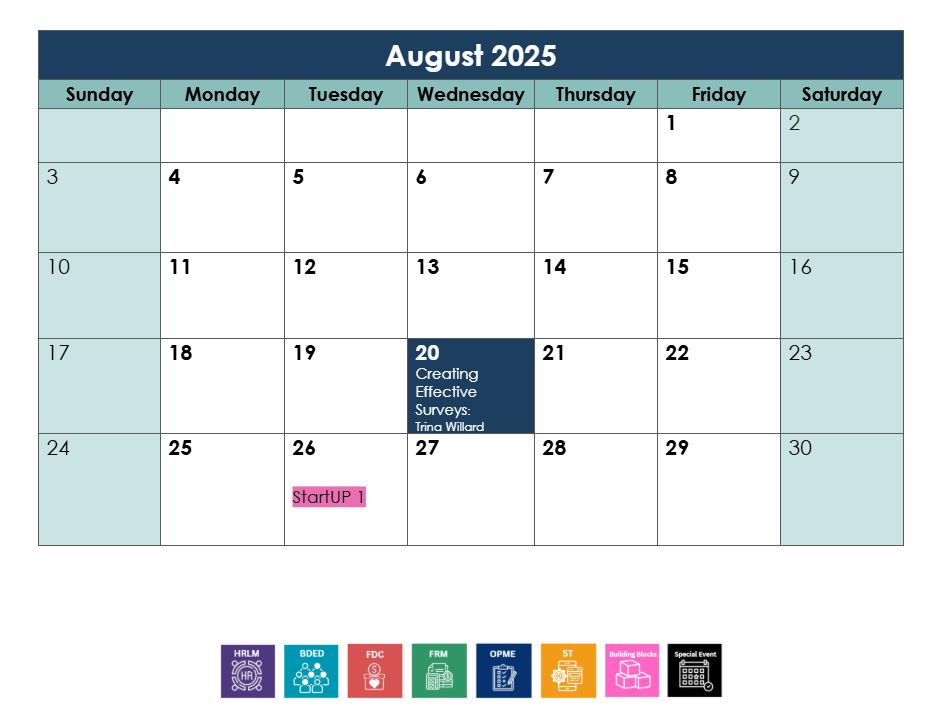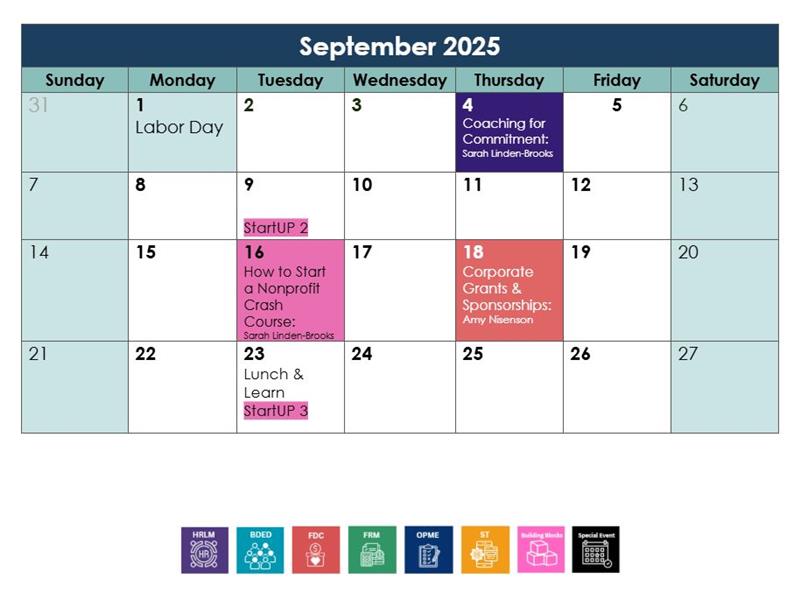Upcoming Courses
Affordable and taught by subject matter experts, our one and two- day classes are open to nonprofit professionals and volunteers. View and register for our upcoming courses below.
FALL REGISTRATION OPENS AUGUST 1, 2025
FALL 2025 Classes

